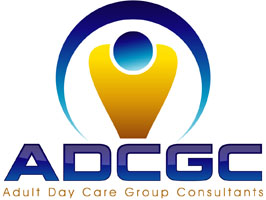WHO GOES TO ADULT DAY CARE
Roger is 77-years-old. Roger is two years post-ischemic stroke. He attends ADC two days per week while Betty, Roger’s wife, runs errands and has time alone. Their children live in other states and Betty is his sole caregiver. Roger uses a wheelchair, has poor vision, impaired judgment, increased fall risk, is unable to verbally communicate effectively and requires medication several times each day. “Adult day care has been a lifesaver for us. I know I could not do this myself,” says Betty.
While at the ADC, the staff monitor Roger’s vital signs, observe for physical and cognitive changes, administer medications throughout the day and assist him with his toileting needs. In addition, Roger enjoys interaction with other participants, is served lunch, two snacks and benefits from physical therapy provided by the School of Health Professions’ physical therapy faculty and students.
Daily assessment and observation help promote early detection for urinary tract infections, dietary and nutritional problems and diabetic related concerns. Even small changes are communicated to caregivers at arrival and pick-up times in an effort to encourage prompt medical intervention through their primary care physician.
For families like Roger’s, the ADC provides a safe and engaging environment for him while Betty experiences much needed respite and enjoys a reprieve from her always watchful duties as a caregiver. Full-time caregivers like Betty are significantly more likely to experience depression, an increased risk of heart disease and less likely to engage in self preventive health behaviors.7, 8, 9 It is estimated that elderly spousal caregivers (aged 66–96) have a 63% higher mortality rate than noncaregivers the same age.10 One client’s caregiver called the ADC “an oasis for the cared-for and caregiver alike.” The ADC staff monitor client’s physical and cognitive status and promptly alert caregivers to any changes. Early detection of health status changes and good communication with caregivers can lead to a quick trip to a primary care physician versus an alarming and expensive visit to the emergency department. The ADC staff are ever watchful of the caregiver’s health and stress level. Constantly ready with additional resources and support, the center’s staff are equally quick to act when caregivers show signs of distress or declining health. Betty reports that utilization of adult day services has helped to maintain Roger’s general health and has enhanced quality of life for both.
